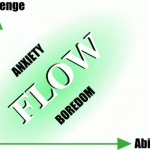Is this all a big cyber-shuck?
Several recent books have announced a cyber-backlash. First published was Silicon Snake Oil by Clifford Stoll, then City Lights Books released Resisting the Virtual Life by James Brook and Iain A. Boal. Both works make sobering and valuable reading.
The problem is, computers are so new we don’t really know yet what they’re good for–so they tend to get used inappropriately. Some examples from the books above:
Much money is spent on putting computers into the schools, despite the lack of trained teachers to use them and the lack of good materials to run on them. All this while public libraries are being closed for lack of funds, and the teacher-student ratio continues to worsen.
The Internet is touted as the ultimate communications medium, yet it is fraught with bile and idiocy. Anyone who thinks computer-mediated communication is the ticket to a more literate population hasn’t spent much time on Usenet.
The “Information Superhighway” is not necessarily an on-ramp for the whole population. There is plenty of evidence that the only kids who become truly computer-adept are those whose parents also use computers or at least support their computer habit. And computers are still supremely and absurdly hard to use. Talking about universal access is a joke when 18% of black and Hispanic households don’t have a phone yet. (Reference from an article in the e-magazine Feed.)
“Interactivity” is touted as the future of media, but all attempts to create an “interactive TV” have failed. Most CD-ROMs are very constrained and constraining in the possibilities you have for interaction. It’s not really an open-ended world; you’re limited to what the designer put on the disk, which is never very much.
“Virtual communities” are a nice idea, but what’s wrong with REAL communities? Staring at a screen is a poor substitute for talking with a real human being, and the more time you spend in cyberspace, the less time you spend with the people around you. (But how different is this from being shy in general? Someone said this: “When I was young, we had a name for these kids who stayed indoors all the time. We called them bookworms.”)
Computers are too often touted as a solution to genuinely hard problems which have nothing to do with computers. Computers are not a panacea for anything, and in fact they exacerbate some social ills, making it potentially easier to ignore the real world in favor of the pristine cyberverse.
The hype muddle
All this is worsened by the frantic drive for market share that is endemic to any industry. Computers are oversold because everyone in the PC industry is desperate to make a living. *** This often leads to a lot of sloppy thinking.
I know firsthand how easy it is to get stuck in the hype mindset. Back in February, I wrote an essay for Wired, which was never published, thankfully. Looking back at that essay now, it seems like a hypnotized marketer ranting about the potential of the information superhighway. I am not sure now how much of what I said has value and how much was technobraggadocio. These new pages are an exercise in figuring that out.
For a vastly useful hypertext critique of one of the best current examples of techno-hype, see the Feed commentary on Newt Gingrich’s Magna Carta.
It is vital for everyone in the industry to read, and think hard about, the critiques that are emerging. We have done a lot of harm in our headlong flight into the future, and we have many amends to make. If anyone finds any better cybercritique sites on the Web, please let me know, as more deserves to be said here.
So why bother?
Why then am I spending all this time writing about and working with computers?
For me, computers are foremost a source of flow… I happen to be good at software (who knows why) and building it is fun. Moreover, I’ve been fortunate enough to work with people who are genuinely concerned about the impact of technology. It’s also been very lucrative, which is not a redeeming factor in itself, but it’d be disingenuous to conceal it.
The World Wide Web is the most potent example of how computers can work well. The highest uses of computers involve making it easier for people to connect, based on shared interests and ideas. The Web links the world of thoughts with the world of people, in a global way. There really is a whole world of choices on the Web, because so many people are making it their own. There are plenty of examples of good Web uses. (Warning: side-link.)
Most complex computer worlds may be just diversions at present, but if they are recognized as such (and not expected to be more), it is clear that they are some of the most novel diversions humans have ever built. There is lots of experimentation going on. (Warning: side-link.)
In the long run, computers, I believe, were waiting to be invented. Human culture is built around manipulating symbols to make sense of the world. In this sense, computers are just another tool we have created to augment ourselves. I do not believe that technology is inherently bad; I believe it is our inability to cope with the consequences of our technology that is bad. We can address this, by identifying what is truly important in life, and by shaping our lives and the lives of those close to us to correspond. This is not just a facile “fix the bugs in the tech” response, but a call to remake our lives in a more humane way, using technology appropriately and sustainably.








